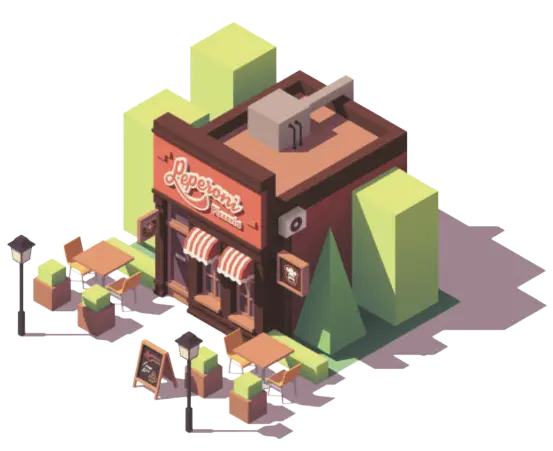
Purchase your $199 Restaurant Location Site Report
Restaurant 1 3 5 Mile Radius Demographics & Market Data Available
Select your business or a competitor below to unlock site selection insights.
- Population Demographics included 5 and 10 year forecasts.
- Household Incomes
- Weekly Per Capita Expenditures across relevant restaurant categories
- Competitive Business Density (aka, how many similar businesses in the location)
- Other important factors to your industry
Restaurant Competitive Intelligence for Wahkiakum County, Washington
View a list of the local restaurant competition and click on location name for more details regarding estimated visitor traffic, population demographics, popular visit times, and more. Includes a 1, 3, 5-mile site selection data analytics report for each restaurant location.
Explore Restaurant Locations by City in Wahkiakum County, Washington
Unlock population and market insights by exploring the best Wahkiakum County's city-level restaurant site locations.
Ideal Restaurant Cities in Washington
List of the Best Restaurant Locations by City in Wahkiakum County, WA
Restaurant Site Selection Considerations for Wahkiakum County, Washington

Since 2014, Marc Smookler, Kevin James, and the Plotr Team have been empowering business operators and owners with location data insights. They are the geo-intelligence experts.
When it comes to restaurants in Wahkiakum County, Washington, meticulous site selection is of utmost importance, especially considering the competitive density of businesses in the area. Wahkiakum County, Washington is renowned for its bustling commercial landscape, with numerous restaurants vying for the attention of discerning customers.
Choosing the right site in Wahkiakum County, Washington involves a careful analysis of the existing business ecosystem. A high concentration of restaurants might indicate a thriving dining culture, but it also means intense competition. It is crucial to assess the saturation level and identify gaps in the market that can be exploited to gain a competitive edge. By understanding the offerings of nearby establishments, a restaurant can position itself as a unique and enticing option that stands out amidst the crowd.
Moreover, the proximity to complementary businesses can significantly impact a restaurant's success. Collaborating with nearby establishments, such as theaters, cinemas, or popular retail stores, can create symbiotic relationships and drive more foot traffic to the restaurant. By strategically positioning themselves in areas frequented by potential customers, restaurants in Wahkiakum County, Washington can tap into a ready-made customer base and enjoy increased visibility and patronage.
Site selection also encompasses the consideration of accessibility and convenience for customers. The availability of parking spaces, public transportation options, and pedestrian access should be evaluated to ensure that potential diners can easily reach the restaurant. An easily accessible location can attract both spontaneous visitors and those planning a dining experience, expanding the customer base and fostering repeat business.
In conclusion, site selection is an intricate task for restaurants in Wahkiakum County, Washington, given the competitive density of businesses. By carefully studying the market, identifying gaps, and strategically positioning the restaurant in areas with complementary businesses and convenient access, restaurateurs can navigate the bustling landscape and carve a distinct space for their establishment, thriving amidst the vibrant competition in Wahkiakum County, Washington.
More Restaurant Performance Insights
- The Top 10 Site-Selection Considerations When Opening a New Restaurant
- Why Restaurant Owners Should Utilize 1-3-5 Mile Radius Reports When Choosing a New Location
- Unveiling the Radius Report: Key Insights for Restaurant Operators to Drive Success
- Navigating the Radius: Avoiding Common Pitfalls When Analyzing 1-3-5 Mile Reports for Restaurant Success
- Reasons Restaurants Fail: Why Location Matters
- The Impact of Site Selection: Lessons from Failed Restaurant Franchises
